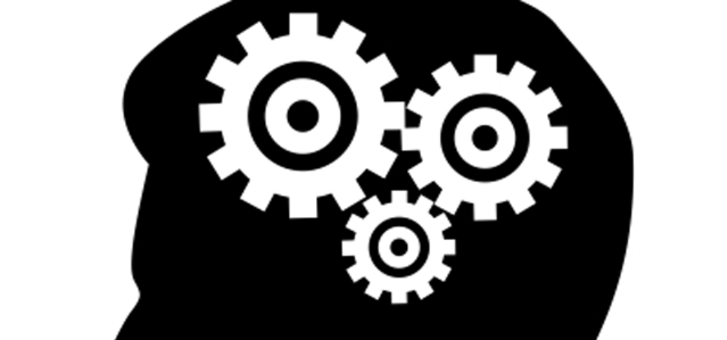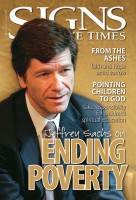There is a winsomeness in God, a rollicking, frolicking goodness that tickles and refreshes us. We see it in the vein of a leaf, in skipping rocks on a smooth lake, in the infinite variety of human voices. But undoubtedly, the most glorious creation of God is the human brain. About the size of a grapefruit, it’s the one organ we cannot transplant and still be ourselves.
In the human brain, there are perhaps one trillion neurons—nerve cells—and the number of possible interconnections between these cells is greater than the number of atoms in the known universe.
Nobel laureate Roger Sperry observes that in the brain “there are forces within forces within forces, as in no other cubic half-foot of universe that we know.” Dr Paul Brand adds, “I have been inside a human brain on maybe a half-dozen occasions. Each time I have felt humble and inadequate, a trespasser entering where no man was meant to. Who am I to invade the holy place where a person resides? Perhaps if I worked on brains daily, I would grow more callous and unimpressed. But I think not—the brain surgeons I know still talk of their subject in hushed, almost worshipful tones.”
The human brain can be divided into many groupings, including left brain and right brain. The left hemisphere of the brain is analytical, the right hemisphere is creative; the left is serial, the right is holistic. We know and don’t know much about the human brain but the bigger question is: What is God’s brain like?
Some view God as a great unblinking cosmic stare—uninvolved, unmoved.
Does God really care about you, your dog, bending birches, starlings, leaping dolphins? Albert Einstein confides, “I want to know God’s thoughts ... the rest are details.”
God has to be the epitome of balance to fashion the endlessly intricate mechanism of life and our capacity to enjoy it, a divine blend of logic and laughter.
Using His left brain, God eliminated flutter problems in butterfly wings long before scientists eliminated flutter on bridges. God knitted amino acids, formed retinas and shaped palates into complexities beyond comprehension.
But it becomes increasingly clear that once the Judeo-Christian God analysed and set up life so that “it was good,”
God chose to interact with us as a right-brained being, using metaphor, music and movement to reach us.
Though He numbers the hairs on our heads, God is not a statistician.
Life is less like counting the seeds in an apple and more like counting the apples in a seed. Go figure the calculus of a soul but first factor in the joy of stretching in the morning. Add to that the roaring of the wind, the rising of the sap, the aroma of baking bread.
God definitely has diversity on the brain. Not content with a firefly and a potato bug, He conjured up 300,000 species of beetles and weevils.
God is more a poet than a police officer. He’s more an acrobat than an accountant, more a midwife than an anaesthetist. He values relationships more than rules.
He’s more interested in our nearness than our neatness. He desires more to be loved than to be understood.
One of the most revealing creations of God is the miracle of human sexuality. Of all the myriad options possible, God chose a delirious fitting together that has also, frankly, led to unbelievable pain. A purely analytical God would have had us reproduce asexually by mitosis—it’s much less messy, and the risky potential for hurt would be eliminated.
Instead, a right-brained God designed sex to engage our deepest emotions, knowing the powerful bond it produces between a loving husband and wife to be worth the inherent dangers. It’s an astounding decision, one that shouts volumes about the sacredness of committed love.
Given the choice of flawless perfection or life, God makes the same choice earthly parents make when they choose to have children: fussing, burping, messy, disobedient, imperfect ... life. It’s the choice Jesus from the town of Nazareth made. Instead of becoming a monkish Essene, hidden and shielded from the world’s evils and ills, He chose to come in contact with despair and decay, and hope and healing sprang from His fingertips wherever He touched. Confronting the frothing demoniacs, rebuking the mourners by a dead boy and wading out of the terrified crowd to touch a festering leper, Jesus said yes to life.
We must not restrict God’s creative, wholistic activity to religion. God is at work in the world in sweet corn, a soccer kick and an escalator. God speaks through astronomers, artists, psychologists and historians.
Some people say, “Better to leave theology to the theologians.” To the theologians?
If what is meant by theology is inconsequential, arcane nitpicking that judges the menu as more important than the meal, I will gladly leave it to the professionals. But if theology means the discussion, study or experience of God, then I will bring it to breakfast. I will carry it in my car.
I will open it in my classes. I will sing it in the shower. The prophet Jeremiah declares, “If I say ‘I will not mention him, / or speak any more in His name,’ / there is in my heart as it were a burning fire / shut up in my bones, / and I am weary with holding it in, and I cannot.”
When snorkelling at Hawaii’s Hanauma Bay, I saw a sea turtle flipping in slow-motion out to a sea canyon. I was so awestruck by the sight that I momentarily forgot where I was and involuntarily said out loud, underwater, “Thank You, God.” I sounded strange but it occurs to me that I could say it more often. God is our passion and our prize—our banana split, our walking stick, our eyes.



